Zac Schultz:
The following program is part of our Here and Now 2016 Wisconsin Vote election coverage.
Announcer:
Funding for Here and Now is provided in part by Friends of Wisconsin Public Television.
Frederica Freyberg:
Tonight Here and Now, from the city of Wausau in the heart of the state, in the heart of the election season where local voters are looking for answers to their top concerns.
Woman:
I personally concerned about immigration issues.
Woman:
Issue number one is Wausau’s jobs. I think that’s really important to everyone, jobs and economic development.
Man:
I believe in supporting those that need help, but there needs to be some encouragement for them to go back to work.
Frederica Freyberg:
Welcome to Wausau and to Here and Now Wisconsin Votes Special. We’re coming to you live from the Thrive Foodery in Wausau’s River District. A busy night here at Thrive as customers kick off their weekend with dinner and conversation. Conversation that may well include politics. I’m Frederica Freyberg, welcome to Wausau and a special edition of Here and Now. It’s our first stop as we travel the state with our Wisconsin Public Radio partners to take our Wisconsin Vote Election project on the road. Tonight, we’ll dive in to the seventh congressional race. Later, a UW political scientist surveys the politics of the central part of our state, we’ll learn about the deeply rooted Hmong community in the Wausau area, and reporter Zac Schultz takes a look at the lack of trust in this election season. But first, Wausau’s seventh congressional district is represented in Washington by Republican Sean Duffy, who is in his third term. Congressman Duffy was invited to appear together tonight with his opponent. He said he was unable to schedule it. We also asked if he would sit down with us for a one on one interview to be taped anytime, anywhere during this past week. He declined that request as well. The challenger in the race is Democrat Mary Hoeft. In addition to her years as a professor at UW-Barron County in Rice Lake, Ms. Hoeft is also a former Rice Lake School Board member. Mary Hoeft joins us now, and thanks very much for being here.
Mary Hoeft:
Thank you Frederica, it’s my pleasure.
Frederica Freyberg:
Well now it’s quite a jump from school board to Congress. Why did you decide to take on a well-financed incumbent?
Mary Hoeft:
Well, I didn’t take on a well-financed incumbent. I took on a mission. My university students were suffering. I saw their plight. I saw the difficulty for them to pay their tuition, to, they had full time jobs, supporting moms and dads, poverty in Wisconsin 30 year all time highs, so when Democratic leaders came to me and said Mary, do this, I said I have to. I’m doing this for my students.
Frederica Freyberg:
Now you’ve repeatedly asked Sean Duffy to withdraw his support for Donald Trump. His response to that has been variations on this theme which we quote now in his absence. He says “Trump’s recent comments are reprehensible. “I never endorsed Donald Trump because of “his stance on women or his family values. “I endorsed him for his policies. “Defeating ISIS, securing our border, “and growing our economy.” What is your reaction to that reasoning on his part?
Mary Hoeft:
Well, it makes no sense. This is a man, we’re talking Donald Trump right now, who has admitted to the sexual abuse of women. So you, he calls that, Sean Duffy calls that Donald Trump’s private life, but that is a man who would be president, and as a man who would be president, he’s going to be addressing issues of gender and equity, violence against women and men, reproductive rights. These are all policies that a president is going to have a huge impact on, and Sean Duffy knows that. He knows that. You can’t separate the two.
Frederica Freyberg:
For his part, he asked how you can support Hillary Clinton?
Mary Hoeft:
Oh, Hillary Clinton, all someone has to do is do the research on this woman. A woman who when she graduated from law school, could have taken any prestigious job. Instead what she’s done is spent a lifetime fighting for the rights of women and children. I have great admiration for this woman, and what she has done for us as Americans, great admiration.
Frederica Freyberg:
What is your number one issue in this, the seventh congressional district?
Mary Hoeft:
It’s changed. Right now it’s my realization that money is buying the votes of people in Congress and Senate. My opponent Sean Duffy recently has accepted $400,000 in political contributions from bankers, but he chairs the banking oversight committee in Congress. He’s accepted the money from the people he oversees, and he knows they want something in return for their votes. Something he’s, for their money, something he’s willing to give them. He has made it his cause to cripple the consumer financial protection bureau and that’s the bureau just recently that uncovered what Wells Fargo did.
Frederica Freyberg:
I took a look at the campaign finance reporting, and yours says that you have raised $63,000. That’s quite a difference from Congressman Sean Duffy.
Mary Hoeft:
Frederica, I think it’s better than that, now. It’s way better, it’s, it’s how I’ve raised my money is not from, I don’t have the Koch Brothers in back of me like he does. It’s why he says there’s no such thing as climate change. He has to. The Koch Brothers right now have companies that spew 24 million tons of carbon into the air that you and I breathe every year. He has to deny it, so he gets their big funding by denying that there’s such a thing as climate change.
Frederica Freyberg:
We should reiterate at this point that we did invite Congressman Sean Duffy to join us and he declined that opportunity–
Mary Hoeft:
And I think this is why he declined and I think it’s why he micromanaged the debates that we’re gonna have.
Frederica Freyberg:
I want to move on to healthcare, and specifically the Affordable Care Act. There are stark differences between your positions. Here is his, quoting from his website, his campaign website again in his absence. It says “Sean Duffy has voted to repeal Obamacare “dozens of times now, and he has also kept his promise “to introduce his own proposal. “Sean’s market-focused proposal” it says on his website “retains the few good portions of Obamacare, “but puts doctors and patients in charge of health decisions “rather than unelected government bureaucrats.” Respond to that, and also tell us about your support of a plan that’s akin to Medicare for all.
Mary Hoeft:
Right, Sean Duffy made a promise. His promise to the people was that he would not vote against the Affordable Care Act until he had an alternative that was viable, and that, the alternative that he’s talking about right now is an alternative I haven’t even seen. What right now, what the people need. All people, well thanks to the Affordable Care Act, we’ve got 20 million people who previously weren’t insured were at almost 90% of the people in our country that are insured now, people with pre-existing conditions like I just talked to a man who is near tears when he said my son with diabetes finally now can get insurance, and that’s important. But what’s, what’s, the problem is is that it’s too expensive for many, and so we’ve got to have a single-payer, and that’s a viable plan.
Frederica Freyberg:
All right, we need to leave it there. Mary, thanks very much.
Mary Hoeft:
Thank you.
Frederica Freyberg:
Coming up, reporter Zac Schultz says Wisconsinites have some very definite opinions on the subject of trust in this election. Trust in the process and the players, including the media. His report in just a few moments as we continue on Here and Now Wisconsin Vote Special here at Thrive Foodery in Wausau.
Man:
I think that most of the people I’ve talked with are really frustrated with the media coverage on both sides. I mean, both public and, not public but general media as well as the conservative media.
Frederica Freyberg:
Welcome back. Hillary Clinton and Donald Trump have the highest unfavorable ratings of any presidential candidates in history. Now one of the biggest storylines that Donald Trump has inserted into the race is whether or not the election will feature rampant voter fraud, so it’s probably not surprising to hear that Americans’ trust in government, politics, and the media have reached all-time lows. Here and Now reporter Zac Schultz shows us what that means on the campaign trail in Wisconsin.
Newscaster:
This is a new batch of emails. That’s all ahead this hour.
Zac Schultz:
Over the course of four decades, Donald Trump built his personal brand believing the old phrase, there’s no such thing as bad publicity. But the last few months in the spotlight may have changed his mind.
Donald Trump:
Oh, is the media dishonest? How dishonest are these people?
Zac Schultz:
And his supporters are fully on board.
Jeanne Crone:
The general media, I don’t trust at all.
Lisa Hallenbeck:
I think they’re very biased.
Zac Schultz:
They aren’t out of the mainstream. According to the pollster, Gallup, American trust in mass media has reached an all-time low with just 32% saying that have a fair amount or great deal of trust in the media. Broken down by party, just 14% of Republicans have at least a fair amount of trust in the media. At 51%, Democrats are considerably more confident in the media, but even they have big concerns.
Hannah Kasun:
What I think is rough in the news coverage is that people who get the most press are usually people making outrageous statements or doing some crazy thing.
Bernie Sanders:
A lot of the media portrays politics as a personality contest. As a Dancing with the Stars event.
Charlie Sykes:
You’re listening to News Radio 620 WTMJ, I’m Charlie Sykes.
Zac Schultz:
Charlie Sykes has spent the last couple decades building his own media brand as the most influential conservative talk show host in Wisconsin.
Charlie Sykes:
There was a perception on the part of conservatives that the mainstream media was biased, that it was unfair, that is was selective in what it covered and I think this was true. And as a result of this, you had a market for conservative talk radio.
Announcer:
Introducing the next president of the United States, Mr. Donald J. Trump!
Zac Schultz:
But the rise of Donald Trump has led Sykes to believe conservative talk radio went too far in de-legitimizing mainstream media in the eyes and ears of conservatives.
Charlie Sykes:
Our critiques of the mainstream media had perhaps had unintended consequences that we had been too successful.
Zac Schultz:
Sykes was one of the first and loudest voices in the never Trump movement.
Charlie Sykes:
Because I think what Donald Trump has done has been to create this perfect storm of awfulness.
Zac Schultz:
He tried to counter Trump supporters with facts from the New York Times or Washington Post.
Charlie Sykes:
The instinctive reaction was well those are liberal rags. We don’t need to pay any attention, and that was my Whoa moment. Have we actually created kind of a monster here?
Zac Schultz:
Conservative voters today don’t need the mainstream media to feel informed. Beyond Fox News, they have websites like Breitbart and the Drudge Report that aggregate content from other sources, not all of them reputable or reported with the highest standards of journalism. Trump’s biggest media asset is his Twitter account, with 12 and a half million followers retweeting his message.
Jeanne Crone:
His Twitter account and all the people that are promoting him on Twitter, that helps a lot.
Charlie Sykes:
You wake up and you realize well there are no more gatekeepers. There’s no more fact checking.
Donald Trump:
We have to watch what’s going on because this is a dirty business. This is a very, very dirty business. You know what I mean, watch what’s going on.
Zac Schultz:
Trump doesn’t stop with attacking the media.
Charlie Sykes:
He has de-legitimized all of the institutions of our society.
Zac Schultz:
Trump has attacked the whole system from the government to the military to political parties to the political process itself.
Donald Trump:
It’s all part of the rigged system being run at your expense.
Deborah Bargenquast:
They’re already having dead people vote in Colorado on absentee ballots, I mean, I mean they can’t win without cheating.
Charlie Sykes:
You know here we are in which you do have the wildest conspiracy theories from the far reaches of the alt right fever swamps that are now part of the mainstream political dialogue and that’s dangerous.
Zac Schultz:
It’s made voters across the political spectrum nervous about whether the election will be legitimate.
Elayne Moore:
I’m not as comfortable with it this year, no.
Luis Garcia:
I keep reading stories about you know, missing ballots and this and that.
Lisa Hallenbeck:
There’s a lot of things on the internet you know where people that are in charge of our elections have been shown and proven how easily it can be rigged.
Charlie Sykes:
They’re gonna blame it on being rigged and this will be very important for their narrative, and I think the damage that will do to the country is huge because they do have this echo chamber where they will convince an awful lot of people that somehow this was stolen from them.
Woman:
That’s part of–
Zac Schultz:
Charlie Sykes is ending his radio show at the end of the year, and plans to write a book about what happened to the conservative movement.
Charlie Sykes:
And I think that conservatives honestly, at the end of this process have to look themselves in the eye and say okay, to what extent did we contribute to that? To what extent did we ignore that? And where do we go from here?
Crowd:
USA! USA! USA!
Frederica Freyberg:
Well, of all of the people who can hear political messaging in the media and on the trail and cut through the clutter, our next guest gives us an expert’s edge. Chair of the UW-Steven’s Point political science department, professor John Blakeman. Professor, thanks very much for being here.
John Blakeman:
Thanks for having me.
Frederica Freyberg:
Well so answer this question of media bias helping rig the election according to the Trump campaign, what is your reaction to this talk of this election being rigged?
John Blakeman:
Well from the standpoint of media bias, I don’t know. I certainly I think the media has been a little more accommodating to the Clinton campaign than the Trump campaign perhaps, but the media cannot rig an election in and of itself. And when Trump goes on to talk about rigging an election, I think he’s also talking about the process which has sort of a deeper, darker issue associated with it.
Frederica Freyberg:
So how resonant in these hearts is that idea of conspiracy along with the vitriol that kind of necessarily comes with it?
John Blakeman:
Right, well, you know the 50% of Trump supporters buy the rigged election argument right now, and Trump isn’t the first candidate to make it. John McCain made it back in 2008, but he quickly backtracked from it whereas it seems now to be a very solid part of Trump’s campaign message.
Frederica Freyberg:
Now you were telling me about something you called rural rage at work in Wisconsin. How does that manifest in this election?
John Blakeman:
Well, in Wisconsin, interestingly if you look for instance at the most recent Marquette poll, which does divide people up according to whether they live in an urban suburban or rural area, rural voters actually don’t differ too much on economic issues, on other policies, is where they really differ is on immigration, and so perhaps Trump’s message on immigration is appealing to people in more rural areas, and driving a kind of angst or rage that will prompt them to vote.
Frederica Freyberg:
Is it your sense that voters in rural areas are the candidates for these voters are tapping into the so-called politics of resentment?
John Blakeman:
Yeah, I think there is a lot to the politics of resentment but I think in Wisconsin a lot of the politics of resentment are really state level issues that have to do with higher education or the role of the DNR in regulating the deer herd, and these really aren’t national issues and Trump of course is not going to address any of that.
Frederica Freyberg:
What kind of position does Trump put down ballot Republican candidates in, especially in this part of the state where he won the primary in the third and seventh congressional district?
John Blakeman:
Well, Ron Kind in the third hasn’t had a challenger, so I guess there’s no down ballot issue there unless a lot of people write in someone else, which could happen. In the seventh district Sean Duffy is a two-term incumbent now. He’s been very successful getting votes, winning elections I should say. I don’t really see that down ballot issues in the seventh are going to be much of an issue at all.
Frederica Freyberg:
All right, well thank you very much for joining us John Blakeman.
John Blakeman:
Yeah, thank you.
Frederica Freyberg:
And if you are just joining us and notice that we are not in our usual studio digs that is because we’re coming to you live from Wausau’s River District, specifically from the dining room of Thrive Foodery, co-owned and operated by David Lorio and Elizabeth Hinner. And we want to give a shout out to David and Elizabeth for allowing us in tonight. We asked one of them to join us for an interview and they turned us down, but that’s not because they’re shy or unfriendly but because they say they cannot leave the kitchen on a busy Friday night, and there they are. A Louisiana native, David has grown roots in Wausau and dedicates his kitchen to the mission of sustainability and community outreach. Thrive’s menu features produce from Wausau area growers, local dairy and meats and craft beer as well. Even the walls are reclaimed materials including the building’s original overhead garage door and other doors and panels reclaimed by the Wausau Habitat for Humanity. Coming up next on our Wisconsin Vote Special Edition of Here and Now, a look at the cultural and economic contributions of the Wausau, the Hmong people in Wausau.
Man: It’s just seeing how businesses and different fields of study or skills or sharing knowledge with each other, and Wausau seems to cultivate that kind of a community sense.
Frederica Freyberg:
Welcome back to Wausau’s Thrive Foodery. A prominent part of the Wausau community is the Hmong population in Marathon and surrounding counties. About 9,000 people of Southeast Asian descent now call central Wisconsin home, as allies of the US during the Vietnam War the first to arrive landed here following the US withdrawal from Vietnam. Wisconsin has the third highest Hmong population in the country, and Wausau the second highest in the state. The transition has not always been easy or smooth, but now some 40 years on, new generations of Hmong called the Wausau area the only home they’ve known and are increasingly leaders in the community. For example, 22-year old Yee Leng Xiong was just elected to the Marathon County board of supervisors and he joins us now. Thanks very much for being here.
Yee Leng Xiong:
I’m glad I could be here.
Frederica Freyberg:
Well tell us about your family and when and why they arrived in Wausau.
Yee Leng Xiong: Sure, my family arrived in the 1980s. You know I was not the first family here, but you know we were one of the ones who arrived in the 1980s so it was fantastic and we chose this as a place of convening and you know it’s been a great ever since.
Frederica Freyberg:
How would you describe the transition that came with the arrival both for Hmong families and the Wausau community?
Yee Leng Xiong:
Sure, you know in the past you know in the past Wausau was known as the whitest city in the entire, in the entire country but in the last 40 years there has been a lot of progress that has been done to the point where you know you have elected officials that are Hmong descent, such as me and Mary Thao who you know sits on the Wausau School Board.
Frederica Freyberg:
Is there still work to do integrating Hmong families into the fabric of the Wausau community?
Yee Leng Xiong:
Sure, you know there’s always, there can always be improvement and everything. You know the Wausau community here in the colony here, it’s been very supportive the progress of the integrating the Hmong community into the, you know, larger community at large. We are booming, we are, we’re having businesses. You know we have Hmong teachers, Hmong lawyers and everything you know we’re, there’s still work to be done but you know there has been a lot of progress that has been done in the last 40 years as well.
Frederica Freyberg:
Has the presidential campaign rhetoric around immigrants brought out lingering racial divisions in this area?
Yee Leng Xiong:
Sure, you know that’s a very good question. You know from what I experienced, you know this has been the year where I’ve seen a lot of Hmong individuals, especially people in the Hmong community who has paid very close attention to the presidential election, you know all of them were refuge, or sorry, children or they are or a product of a refugees and everything, so you know they were a product of immigrants and everything so it makes them look at the election very closely and this, like I said before, this is the first time I seen this, this interested in an election, in politics.
Frederica Freyberg:
As a county supervisor, what are the issues you most want to address on behalf of your Hmong constituents?
Yee Leng Xiong:
You know, I represent the district 19, but a lot of the Hmong individuals kind of see me as the liaison to the Marathon County Court. I’ve seen many problems and many obstacles actually say it’s kind of prohibits and stops the Hmong community from advancing much further. There’s been a lot of mental health problems in the Hmong community that I see that’s a very big issue. They think of you know the word mental health in Hmong means crazy so you know there needs to be a lot of education. In addition we see that there’s not a lot of cultural sensitive programs that are able to help our Hmong youth to be able to help them build confidence, and help and also be sensitive to their culture.
Frederica Freyberg:
Now I know that Wausau now has a Hmong Chamber of Commerce to assist business startups. How needed is that in your mind?
Yee Leng Xiong:
Sure, you know the Hmong community you know we were brought to this country with the hopes of being able to participate with elections, get education, also be able to participate in the you know business field. You know a lot of Hmong individuals in the Hmong community, I know that wants to start business. They’re you know they want to pursue the American dream and everything and with the Hmong Chamber of Commerce here, we’re providing that resources, providing loans, and that resources to them that allows them to be able to pursue their, you know pursue their American dream.
Frederica Freyberg:
Where do you envision the Hmong community in Wausau being 40 years from now?
Yee Leng Xiong:
That’s a very fantastic question. And we ask that question all the time to ourselves you know we, we want to see you know a world where you know where we as the Hmong community that are able to thrive as other race. You know we’ve only been here 40 years and we made more progress than we have ever had in the last 200 years, and so we want to see us advance even more and be you know just like everybody else.
Frederica Freyberg:
Yee Leng Xiong, thank you very much for being here. Finally tonight, in addition to programs like Here and Now, Wisconsin Public Television also produces hour long programs that explore the history of cities across the state. So tonight, a short glimpse from Hometown Stories: Wausau.
Woman Narrator:
Changes in Wausau’s skyline reflect new growth on the riverside as new uses are found for the old industrial sites that once lined the banks.
Gary Gisselman:
One of the things that really anchors, I think the history of Wausau is the Wisconsin River. It still tells the story of 1839 when George Stevens came up, started his first sawmill. It still tells the story of a variety of other people that have come and made Wausau what it is. Then I think that anchor is the Wisconsin River that continues to flow down this wonderful city.
Frederica Freyberg:
Hometown Stories: Wausau can be found in its entirety on our website, WPT.org. From the banks of the Wisconsin River to the Wausau River District and Thrive Foodery, our Here and Now home for the evening, we want to thank co-owners and chefs David Lorio and Elizabeth Hinner for letting us set up shop and broadcast on a busy Friday night. Next week our WPR, WPT Wisconsin Vote project hits the road again, and Here and Now will come to you from La Crosse from the Pearl Street Brewery. For more on our upcoming Wisconsin Vote road trip programs including the Joy Cardin Show, Here and Now and our Meet the Media events, go to the events page at W, at WisconsinVote.org. I’m Frederica Freyberg, have a great weekend.
Announcer:
Funding for Here and Now is provided in part by Friends of Wisconsin Public Television.
Zac Schultz:
For more information on Here and Now’s 2016 election coverage, go to WisconsinVote.org.
Search Episodes
Related Stories from PBS Wisconsin's Blog

Donate to sign up. Activate and sign in to Passport. It's that easy to help PBS Wisconsin serve your community through media that educates, inspires, and entertains.
Make your membership gift today
Only for new users: Activate Passport using your code or email address
Already a member?
Look up my account
Need some help? Go to FAQ or visit PBS Passport Help
Need help accessing PBS Wisconsin anywhere?

Online Access | Platform & Device Access | Cable or Satellite Access | Over-The-Air Access
Visit Access Guide
Need help accessing PBS Wisconsin anywhere?

Visit Our
Live TV Access Guide
Online AccessPlatform & Device Access
Cable or Satellite Access
Over-The-Air Access
Visit Access Guide
 Passport
Passport





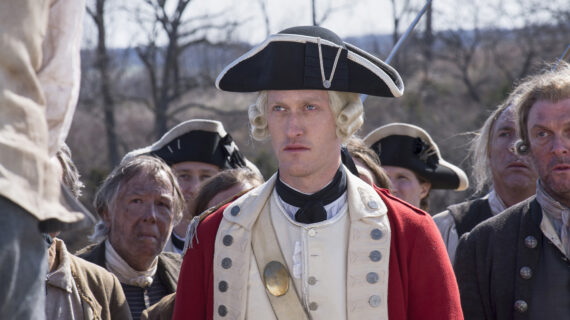
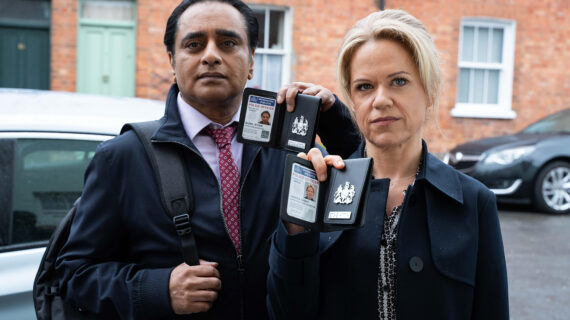
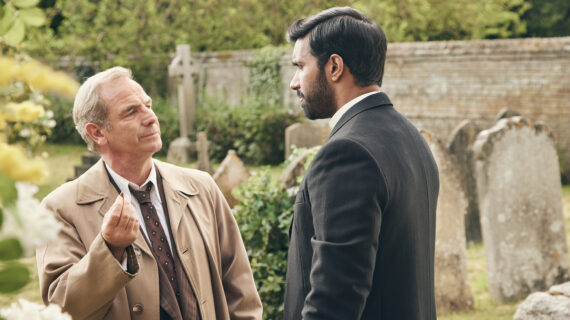


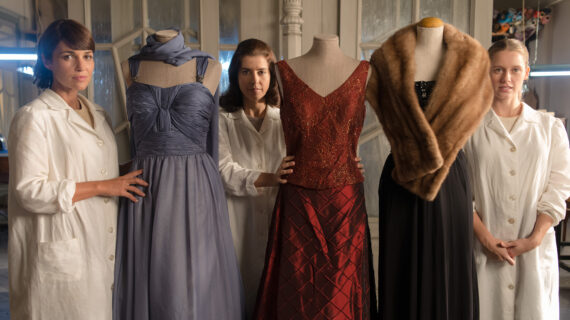


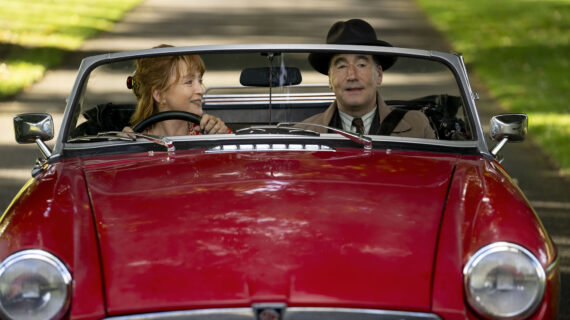
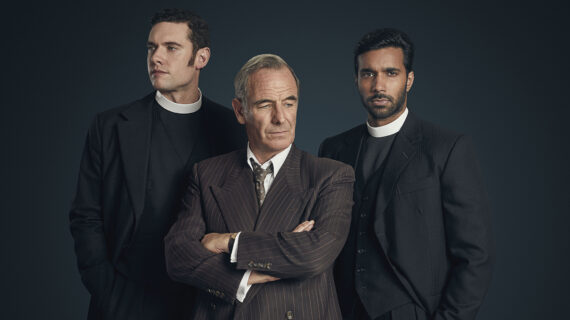
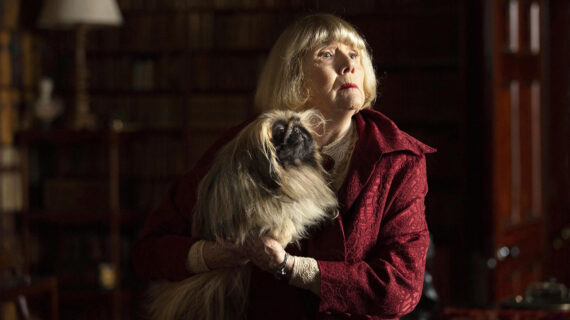

Follow Us